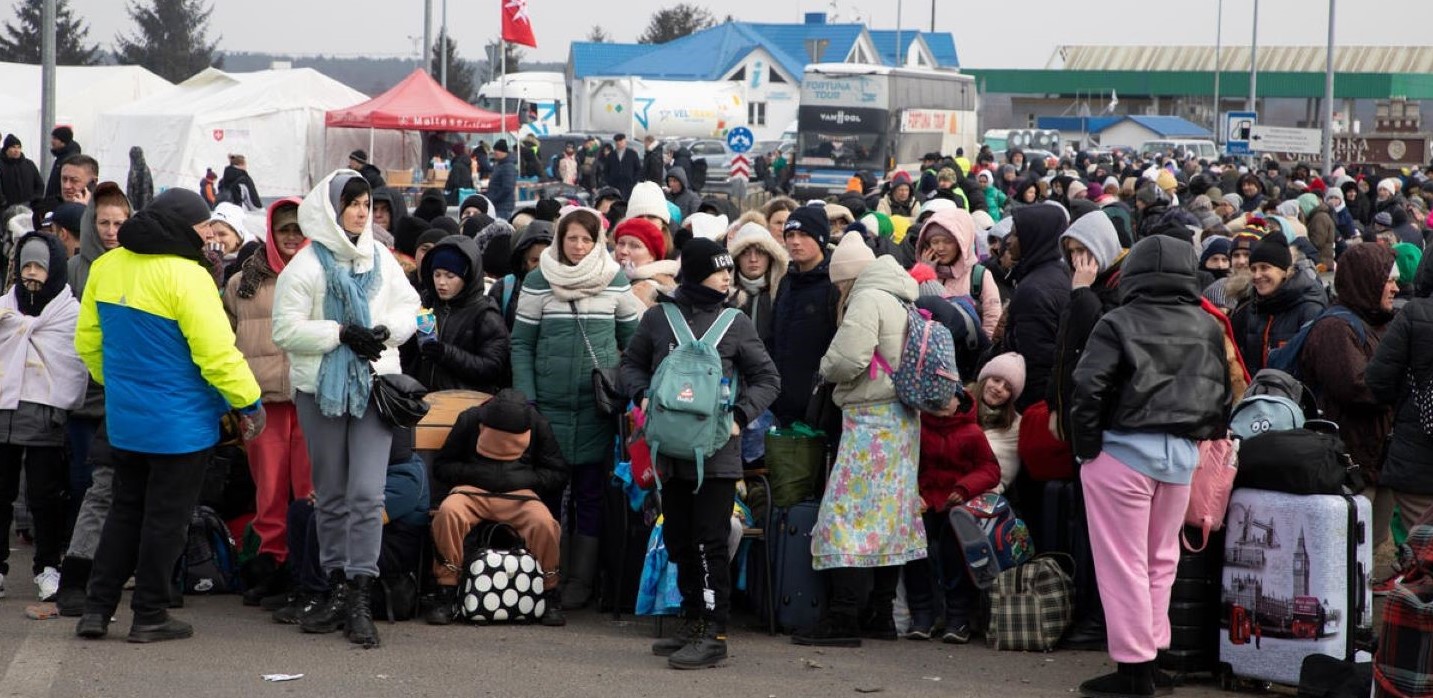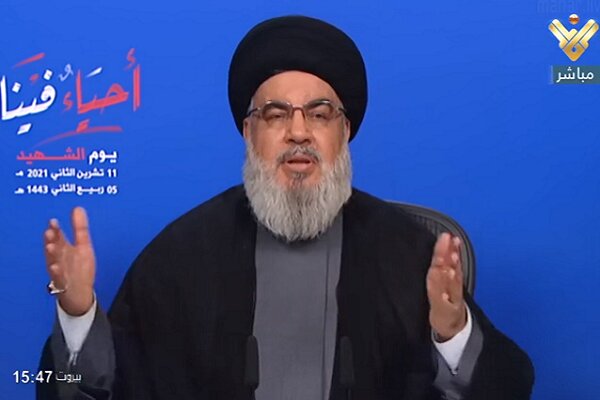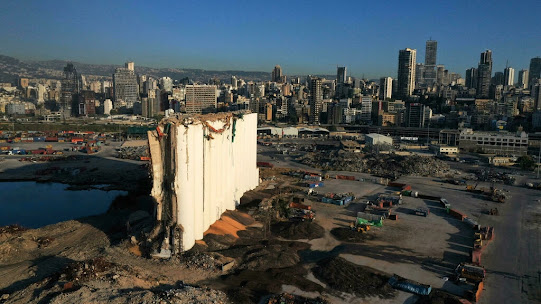
A man walks past posters depicting Lebanon's former Prime Minister Saad Al-Hariri in Beirut
Sun, May 8, 2022,
BEIRUT (Reuters) - Lebanon holds an election on May 15 that could see a shift of power that sends shockwaves far beyond this small country squeezed between Syria and Israel.
Here is a timeline of the nation's recent history, from assassinations and war to a devastating explosion and economic meltdown.
2005
Lebanon's billionaire former premier Rafik al-Hariri is killed on Feb. 14 when a huge bomb explodes as his motorcade travels through Beirut; 21 others also die.
Mass demonstrations erupt blaming the assassination on Syria, which had deployed troops during Lebanon's 15-year civil war and kept them there after it ended in 1990.
Shi'ite allies of Damascus stage their own big rallies in support of Syria, but international pressure forces the troops to withdraw.
2006
In July, armed movement Hezbollah crosses the border into Israel, kidnaps two Israeli soldiers and kills others, sparking a five-week war. At least 1,200 people in Lebanon and 158 Israelis are killed.
After the war, tensions in Lebanon simmer over Hezbollah's arsenal. In November, Hezbollah and its allies quit the cabinet led by Western-backed Prime Minister Fouad Siniora and organise street protests against it.
Anti-Syria politician Pierre Gemayel is assassinated in November.
2007
Hezbollah and its allies maintain a sit-in protest in central Beirut against the Siniora government for the entire year. Their stated demand is veto power in the government.
2008
Wissam Eid, a police intelligence officer investigating the Hariri assassination, is killed by a car bomb in January.
In May, the government outlaws Hezbollah's telecom network. Hezbollah calls the government's move a declaration of war and takes control of mainly Muslim west Beirut in retaliation.
After mediation, rival leaders sign a deal in Qatar to end 18 months of political conflict.
2011
The government led by Hariri's son and political heir, Saad, is toppled when Hezbollah and its allies quit because of tensions over a U.N.-backed tribunal into the Rafik al-Hariri assassination.
2012
Hezbollah fighters deploy to Syria to aid President Bashar al-Assad's forces against a Sunni rebellion.
In October, a car bomb kills senior security official Wissam al-Hassan, whose intelligence service had arrested Michel Samaha, a pro-Syrian former minister charged with transporting Syrian-assembled bombs to wage attacks in Lebanon.
2017
Sunni regional superpower Saudi Arabia, increasingly frustrated with Hezbollah's expanding role in Lebanon, is accused of detaining Saad al-Hariri in Riyadh and forcing him to resign.
Both Riyadh and Hariri publicly deny this version of events, though French leader Emmanuel Macron later says Hariri was being held in Saudi Arabia.
2018
Lebanon holds its first parliamentary vote since 2009, after lawmakers repeatedly extended their four-year mandate, citing security concerns.
Hezbollah and allied groups and individuals win at least 69 of the 128 seats, consolidating their hold over the legislative branch.
2019
Despite a stagnant economy and slowing capital inflows, the government fails to enact reforms that might unlock foreign support, including cutting the state wage and pension bill.
In October, a government move to tax internet calls ignites mass cross-sectarian protests accusing the ruling elite of corruption and mismanagement.
Hariri quits on Oct. 29. The financial crisis accelerates. Depositors are frozen out of their savings amid a hard currency liquidity crunch and crashing currency.
2020
Hassan Diab, a little-known academic, becomes prime minister in January with backing from Hezbollah and its allies.
Lebanon defaults on its sovereign debt in March, the currency loses up to 80% of its value and poverty rates soar.
Talks with the International Monetary Fund flounder as the main parties and influential banks resist a financial recovery plan.
On Aug. 4, a vast quantity of ammonium nitrate explodes at Beirut port, killing more than 200 people, wounding 6,000 and devastating swathes of Beirut.
The Diab cabinet quits and Hariri is designated to form a new government but the parties remain at odds over portfolios.
A U.N.-backed tribunal convicts a Hezbollah member of conspiring to kill Rafik al-Hariri 15 years after his death.
2021
The economic meltdown deepens. Hariri abandons his effort to form a government and trades blame with President Michel Aoun for the failure.
In August, the central bank declares it can no longer finance subsidies for fuel imports, prompting power outages and fuel shortages that lead to long queues and sporadic violence at filling stations.
A tanker explodes in the north, killing more than 20 people.
In September, after more than a year of rows over cabinet posts, a new cabinet is finally agreed led by Najib Mikati.
Its work is quickly derailed by tensions over the investigation into the Beirut port explosion. Hezbollah and its ally Amal demand the removal of investigating judge Tarek Bitar after he charges some of their allies.
The Shi'ite parties call a protest against the judge. Six of their followers are shot dead when violence erupts. Hezbollah blames the Lebanese Forces, a Christian party.
The probe into the port blast grinds to a halt, impeded by a flood of legal complaints against the judge by officials whom he has charged over the disaster.
Gulf states recall their ambassadors and Saudi Arabia bans all Lebanese imports in protest at comments by a pro-Hezbollah minister criticising Saudi Arabia over the war in Yemen.
2022
In January, the pound sinks to 34,000 against the dollar before being strengthened by central bank intervention.
The World Bank blasts the ruling class for "orchestrating" one of the world's worst national economic depressions due to their exploitative grip on resources.
In April, Lebanon reaches a draft agreement with the IMF for a possible $3 billion in support, dependent on Beirut enacting long-delayed reforms.
The ambassadors of Kuwait and Saudi Arabia return. Saudi Arabia and France announce a joint 30 million euro ($32 million) fund to boost health and other services in Lebanon.
Hariri announces he and his Future Movement will not run in a May parliamentary election.
($1 = 0.9471 euros)
(Writing by Tom Perry and William Maclean; Editing by Maya Gebeily, Mike Collett-White and Pravin Char)






























